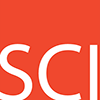Scholarly communication is at a cross road of new technologies and publishing models. The analysis of almost two decades of use of preprints and repositories in the HEP community provides unique evidence to inform the Open Access debate, through four main findings:1.Articles submitted to an Open Access subject repository, arXiv, receive 5 times more citations than articles which are not.2.The citation advantage of articles appearing in a repository is connected to their dissemination prior to publication, 20% of citations of HEP articles over a two-year period occur before publication.3.No discernable citation advantage can yet be observed in the statistically-limited sample of articles published in “gold” Open Access journals.4.HEP scientists are between four and eight times more likely to download an article in its preprint form from arXiv rather than its final published version on a journal web site.Taken together these findings lead to three general conclusions about scholarly communication in HEP, as a discipline that has long embraced green Open Access:1.There is an immense advantage for individual authors, and for the discipline as a whole, in free and immediate circulation of ideas, resulting in a faster scientific discourse.2.The advantages of Open Access in HEP come without mandates and without debates. Universal adoption of Open Access follows from the immediate 11benefits for authors. 3.Peer-reviewed journals have lost their role as a means of scientific discourse, which has effectively moved to the discipline repository.HEP has charted the way for a possible future in scholarly communication to the full benefit of scientists, away from over three centuries of tradition centred on scientific journals. However, HEP peer-reviewed journals play an indispensable role, providing independent accreditation, which is necessary in this field as in the entire, global, academic community. The next challenge for scholarly communication in HEP, and for other disciplines embracing Open Access, will be to address this novel conundrum. Efforts in this direction have already started, with initiatives such as SCOAP3[12,25]
Source: https://arxiv.org/abs/0906.5418










